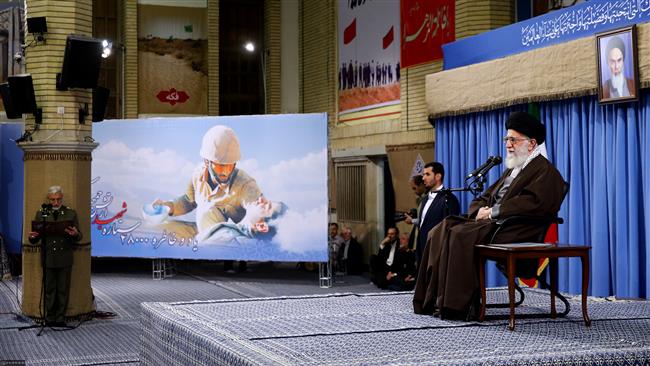Iran election to impact global geopolitical affairs: Analyst
Iran’s 12th presidential election will take place on Friday, and the two main candidates, Hassan Rouhani and Seyyed Ebrahim Raeisi, have done their best to garner their support of the voters. Press TV has talked to Roozbeh Aliabadi, partner at the Global Growth Advisors, as well as Catherine Shakdam, director of Shafaqna Institute for Middle Eastern Studies, to get their opinion on the importance of this election.
Aliabadi believes Iran's election is “extremely important” not just for the Islamic Republic but also for the entire world from a “geopolitical and economic standpoint”.
“What we are seeing is rise of populism and rise of populism has caused a lot of instability in a way in the United States, in Europe. Now people are watching to see whether or not this populism will carry forward or not and essentially Iran’s election will come down to this very crucial point, what will be the political ramifications of the JCPOA [the nuclear deal known as the Joint Comprehensive Plan of Action] and economic promise,” he stated.
The analyst also mentioned the Islamic Republic has been “a beacon of stability and regional security” throughout the past three decades, adding that its influence in the region is increasing.
Therefore, he said, it is important to focus on “voter turnout” on Friday because the health of Iran’s political system is in the hands of the Iranian people not Rouhani or Raeisi.
Aliabadi further opined that this election is going to be about Iran’s economy rather than foreign policy, asserting that it is going to be a “very competitive” one.
The analyst also predicted that there is going to be a very large turnout on Friday, emphasizing that is important to have a “transparent, safe and calm” election.
“This is important for Iran but beyond that I think the region will be watching the Iran voter turnout because it would be a sign of stability, transparency but most important it would be a sign of Iran’s vision for the next four years which will impact a broader region and in a way global geopolitical affairs,” he said in conclusion.
Meanwhile, Catherine Shakdam, the other panelist on the program maintained that the West’s prejudice against Iran is because of the fact that the Islamic Republic has exercised an “independent democracy” which does not have to follow the rules set up by Western imperialism.
“There is a great deal of hope and wisdom in looking at how Iran has managed under so much international pressure, under the weight of economic sanctions and a great deal of political prejudice to actually thrive and be capable of standing independent from the rest of the world but democratic nevertheless,” she said.
The fact that Iran is having an election in a region which is plagued by war and violence is “very significant”, the analyst concluded.
Scores killed as Takfiri terrorists target Shia Muslims in Pakistan
Pezeshkian to US, Europeans: You are killing women, children
VIDEO | COP29: another climate failure?
ICC issues arrest warrants for Netanyahu, Gallant for war crimes
Israeli strikes kill 88 Palestinians in northern Gaza
American voters plainly rejected complicity in Gaza genocide: Iran FM spox
ICC should issue more arrest warrants for Israeli authorities over Gaza genocide: UN expert
Israel using AI weapons co-produced by India in Gaza genocide: Report














 This makes it easy to access the Press TV website
This makes it easy to access the Press TV website